Authors of the Article
Manos Savvakis, an assistant proffessor. Department of Sociology, University of the Aegean:
- Studied sociology, sociology of health and illnesses, social and political philosophy, qualitative esearch design.
Nikos Kolokouras, a master in science in eurotransplant kidney allocation system (ETKAS). Department of Sociology, University of the Aegean.
Authors: doctors practising in sociology and science.

Why the Article was Attractive to Present
- Focuses on connection between chronic pain and quality of life of the patients.
- Researches the other factors influencing chronic pain.
- Is useful for nurses to understand chronic pain management to enhance healthcare.
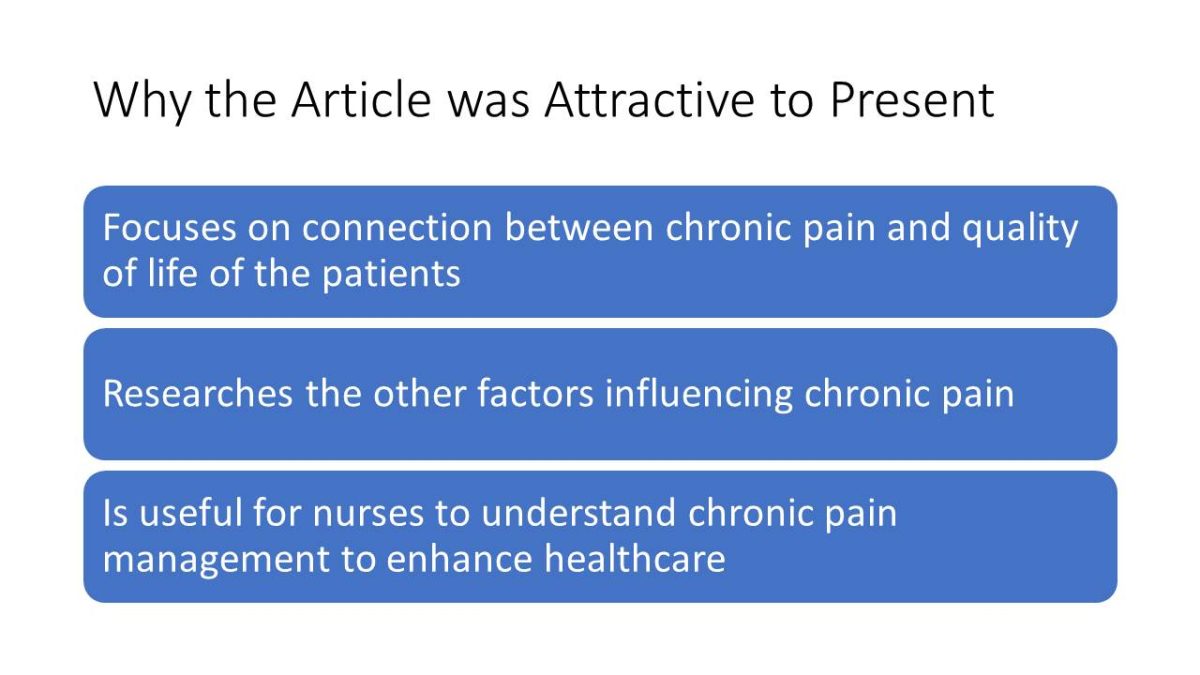
The Aim of the Study
“To investigate the experience of chronic pain and the quality of life of patients with musculoskeletal diseases. What is examined is whether the quality of life of patients with musculoskeletal diseases is exclusively or primarily affected by chronic pain or any other factors, such as social relationships, everyday life experiences, family environment, emotional ties, as well play a crucial role.” (Savvakis & Kolokouras, 2019, p.1423).
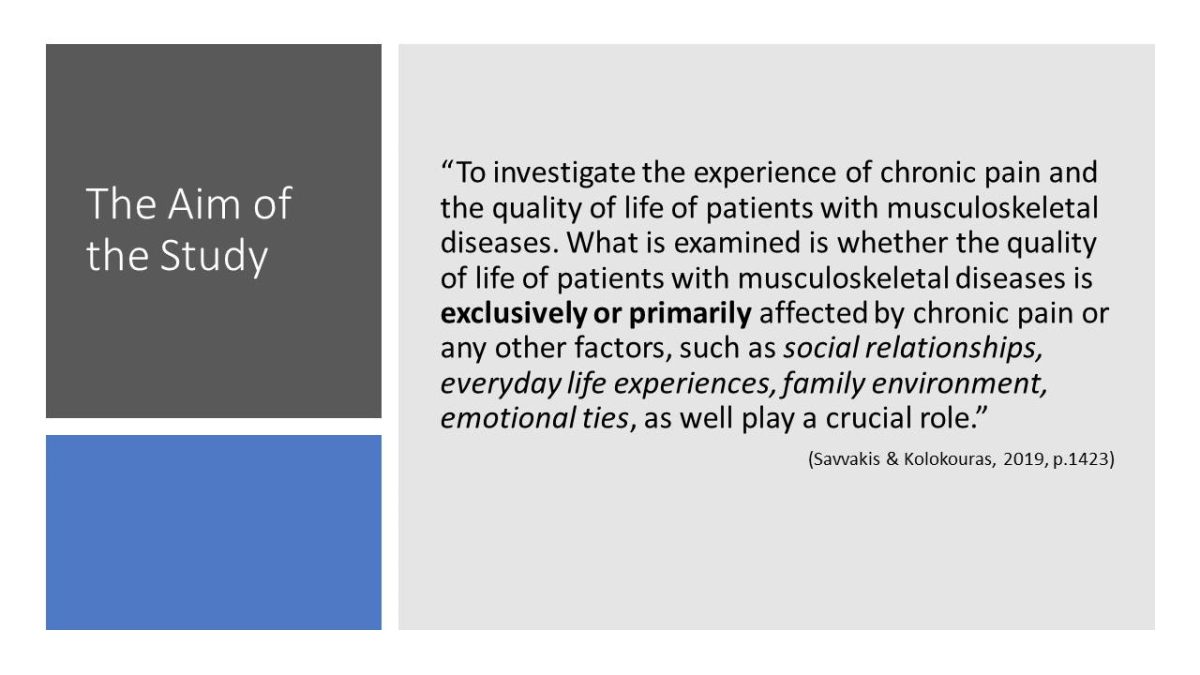
The Concept Investigated
- Learning needs.
- Better understanding of patients in chronic pain life quality.
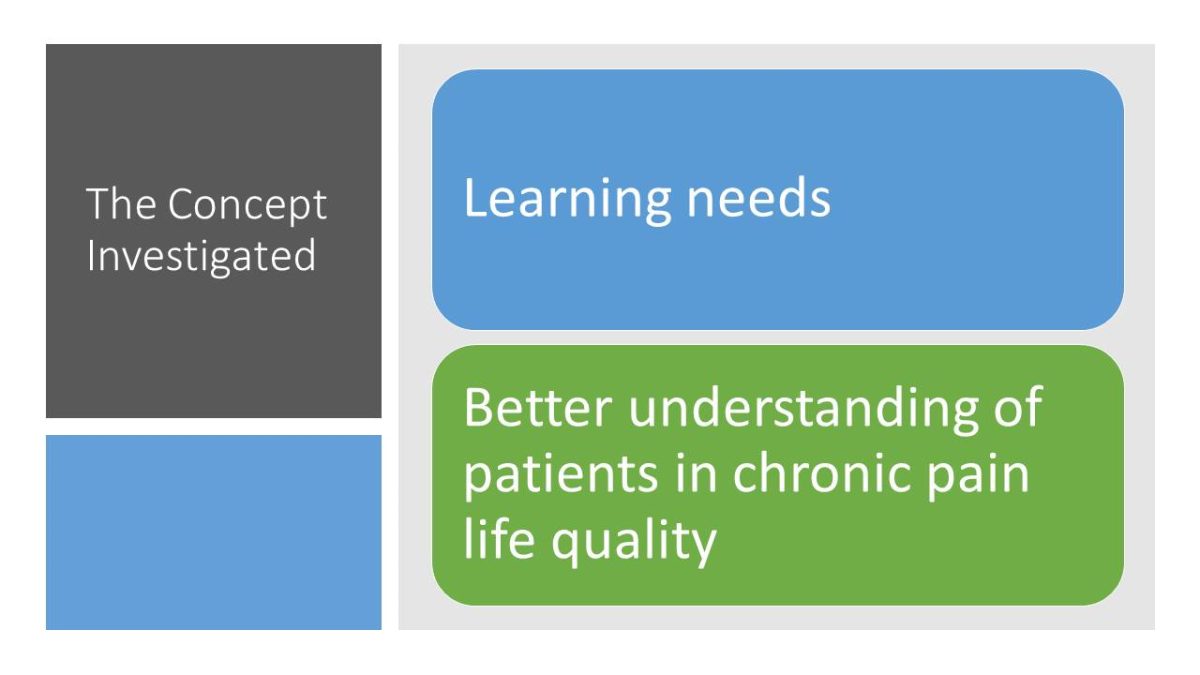
The Qualitative Approach
- Based on heuristic propositions phenomenology and symbolistic interaction.
- Qualitative research methodology.
- Semi-structured interview technique.
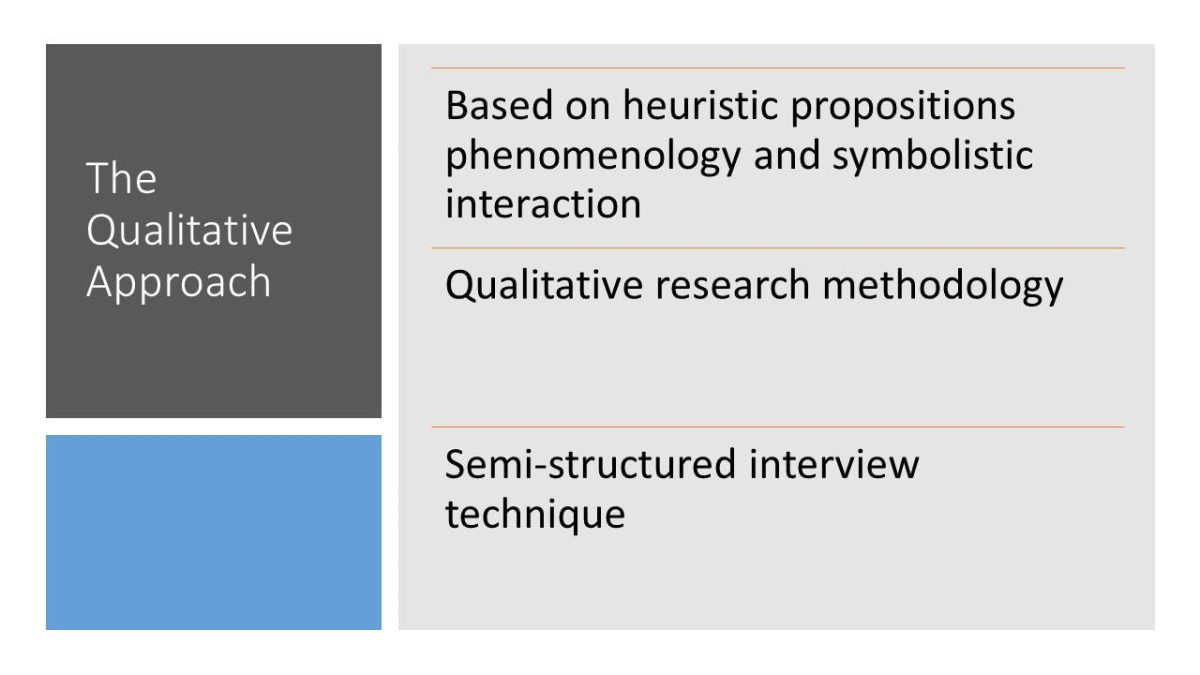
Sample Size
- Targeted sampling.
- Snowball methodological technique.
- 12 participants chosen.
- Selection based on the medical diagnosis of specific musculoskeletal disorders (cervical syndrome, back pain, chronic osteoarthritis, fibromyalgia, rheumatoid arthritis, osteoporosis, etc.)
- Diversity and heterogeneity in terms of age, gender, educational level, type of disease, years of diagnosis and total years of pain.
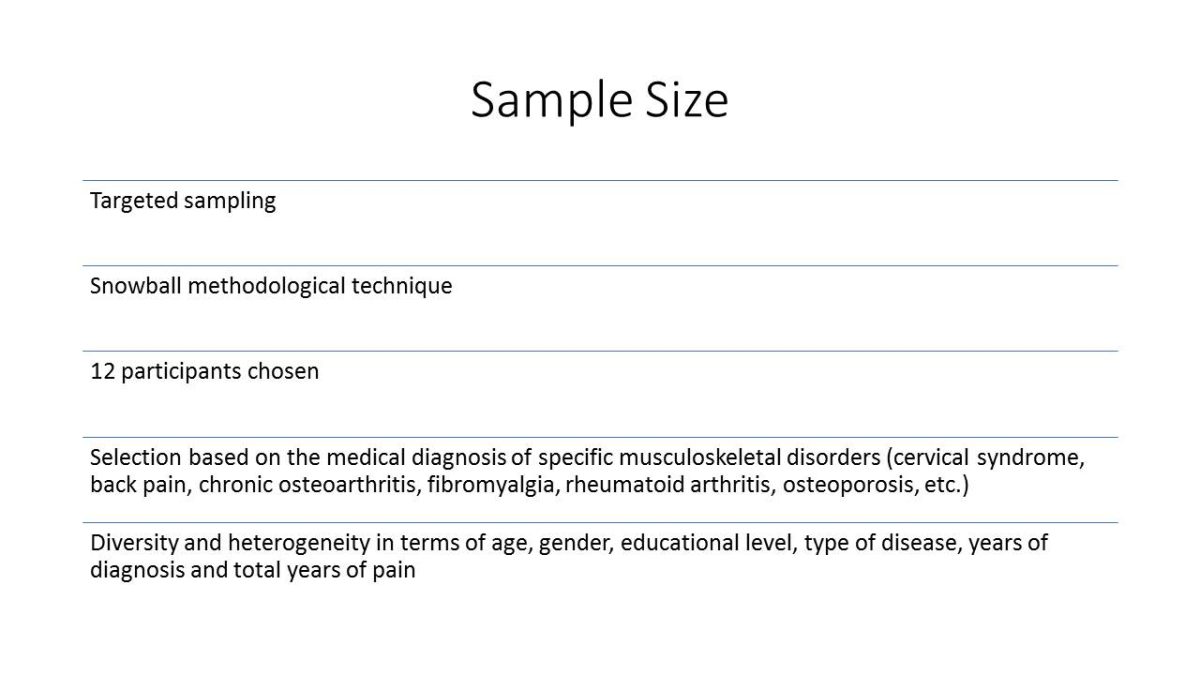
Data Collection
Semi-structured interview:
- Enables the researcher to better comprehend the personalia and social reality of the patient.
- Focuses on subjective expression of pain.
- Allows to interpret the multifaceted and complex chronic pain manifeststions.
- Encourages patients to reflect deeply on their experiences (comparing to closed questionnaries).
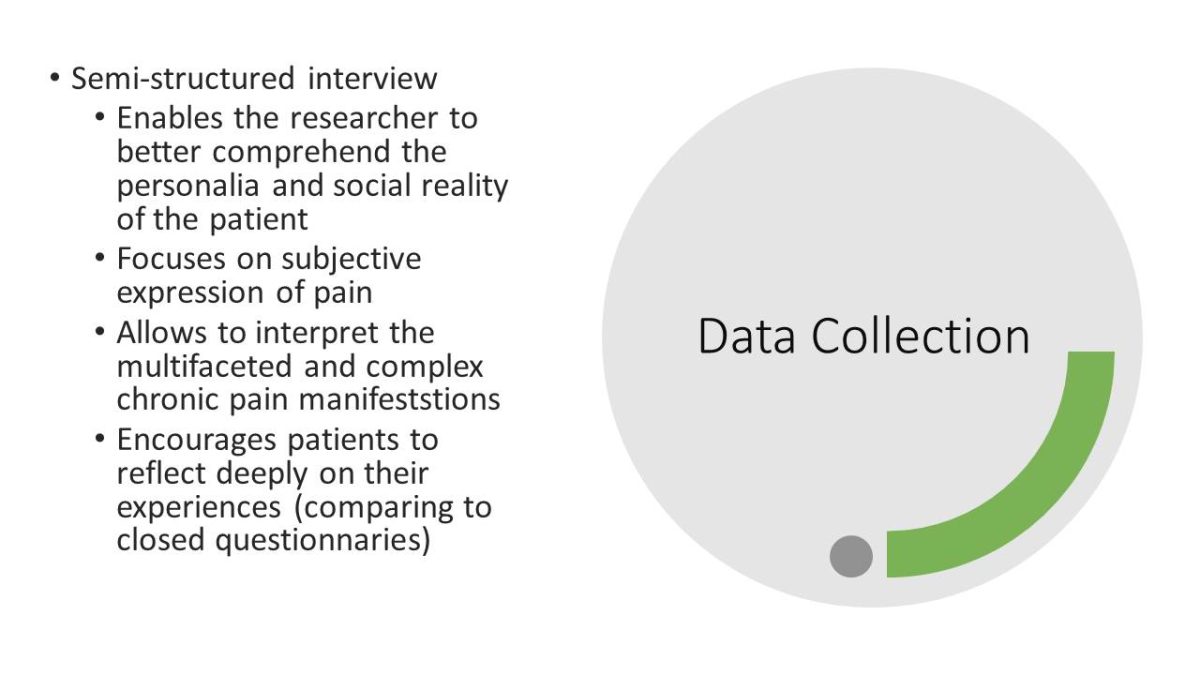
Data Analysis
- heuristic concepts of phenomenology and symbolic interaction.
- Phenomenology: daily activities, interpretation of social circumstances.
- Symbolic interaction: clarification of the social interactions and mediations in a constant flow of social action.

Results
The connection between chronic pain and quality of life among patients with musculoskeletal disorders judging four criteria:
- exacerbation of pain;
- reasons that contribute to its aggravation;
- factors that transform the participants’ quality of life.
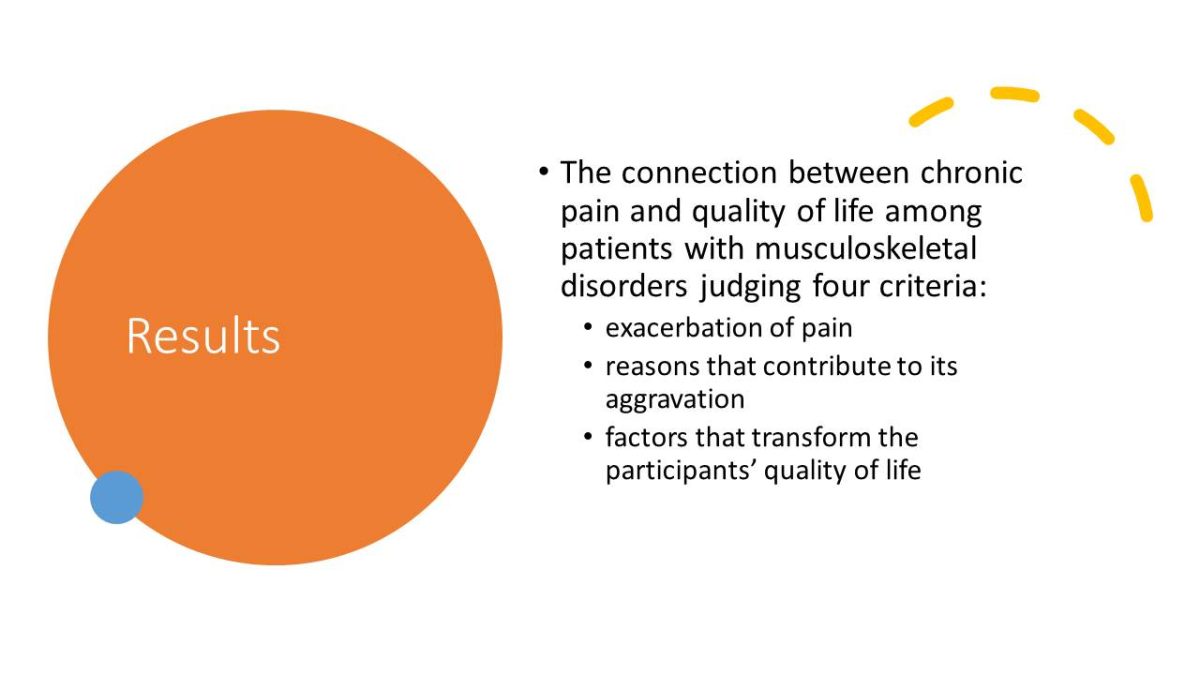
Pain Exacebration
One interviewed narrator:
- substantial impact on physical functionality;
- Effects on daily routine and self-management.
“What do you think? if you are in pain you can’ t go out, you can’ t go anywhere you wish, even self management is impaired. The quality of life has changed, hasn’t it”? (Dimitra). (Savvakis & Kolokouras, 2019, p.1426).
Another participant:
- the important role of the family environment during the exacerbation of symptoms;
- mainly seeks support from the family;
- Supporting actions from others – additional negative emotions.
“No, many things I cannot do. I need help. I’m looking for help in my family environment only. Because I am closer to my family environment, I feel more intimate. Now I do not want strangers, I do not want their pity. I do not want them to help me” (Dimitris). (Savvakis & Kolokouras, 2019, p.1426).
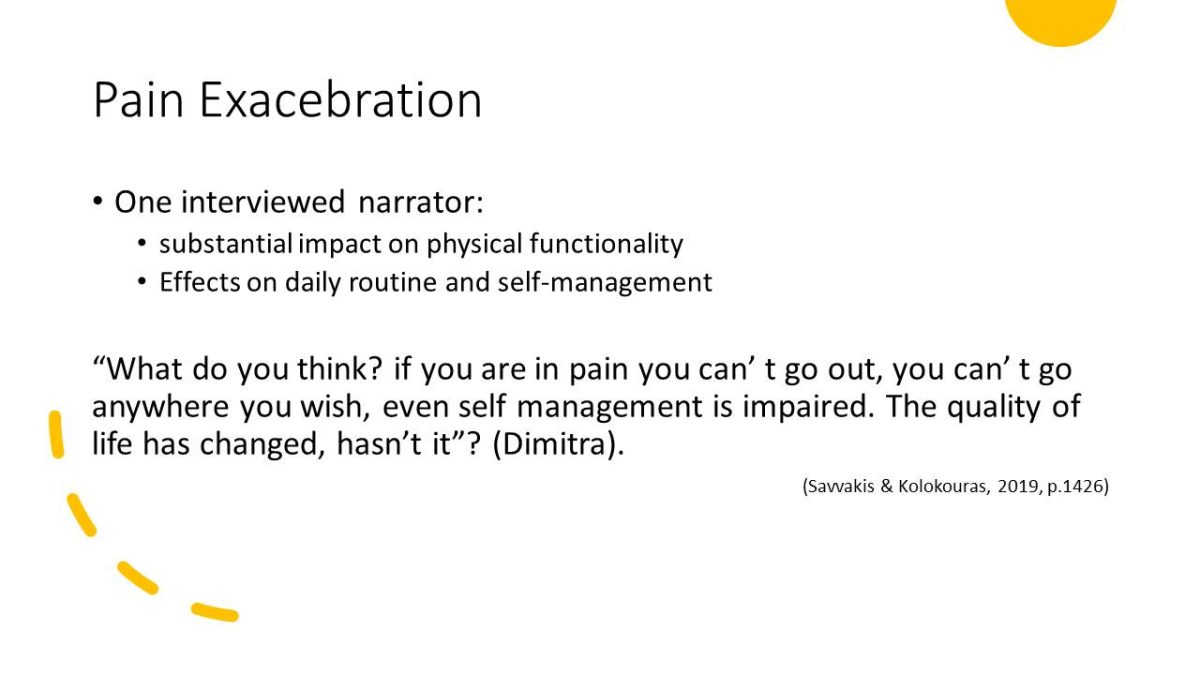
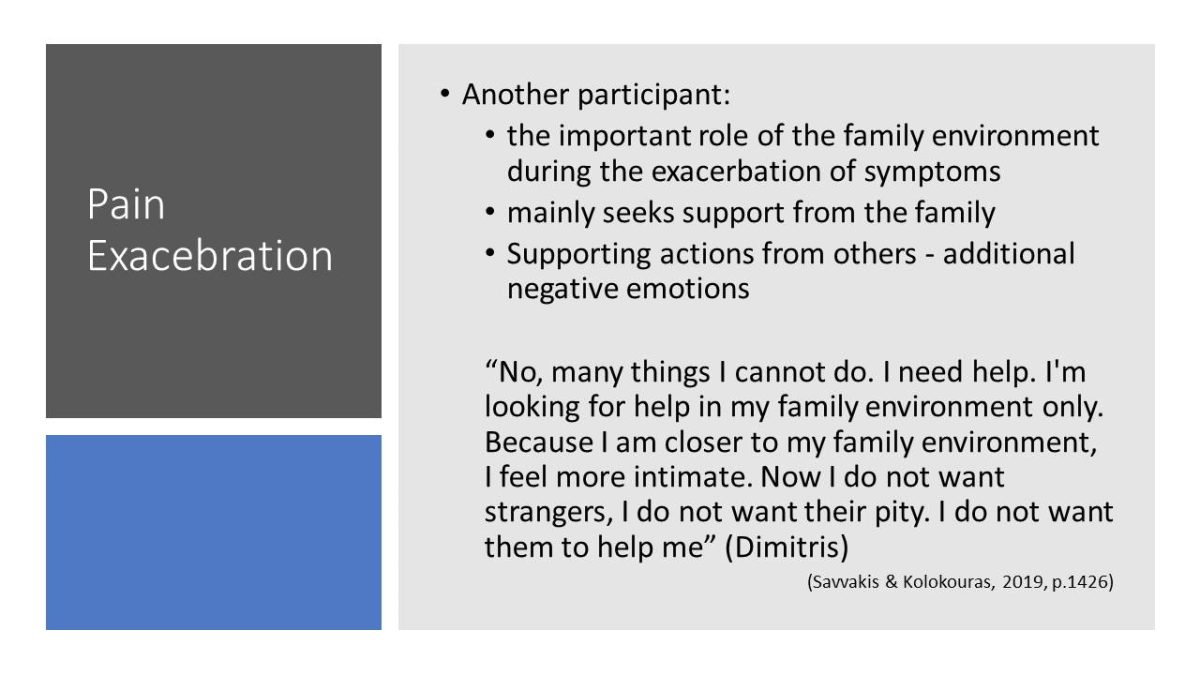
Aggaravating Pain
- Negative emotional and psychological condition in accordance with poor economic conditions.
- Disproportionately affected the image of the narrator, the sense of identity and her place in society.
“I think it is more the psychological factor. Because if someone is always sad, whenever I have no money, to spend which I never had. I had a grandmother who gave me one thousand drachmas a month. If she did not buy me shoes I would not have anything. When I went to school I was still sad, I was always sad. My father would continue to shout every day in the house. He was drunk, throwing things, waving hands and yelling to me. I was afraid when he came in the house, would be really scared. Growing with anger and fear, these things certainly affected me”? (Vasiliki). (Savvakis & Kolokouras, 2019, p.1426).
Another participant: poor financial situation (connection with pain formation and manifestation of autoimmune disease):
- Authors: economic factor is major in influencing life quality.
- Authors: economic factor affects biological, emotional and social characteristics.
- Authors: diversity in health between socio-economic groups of the population.
- Authors: lack of goods and abilities impacts on life quality.
Participant #3: Nutrition and environment affect life quality.
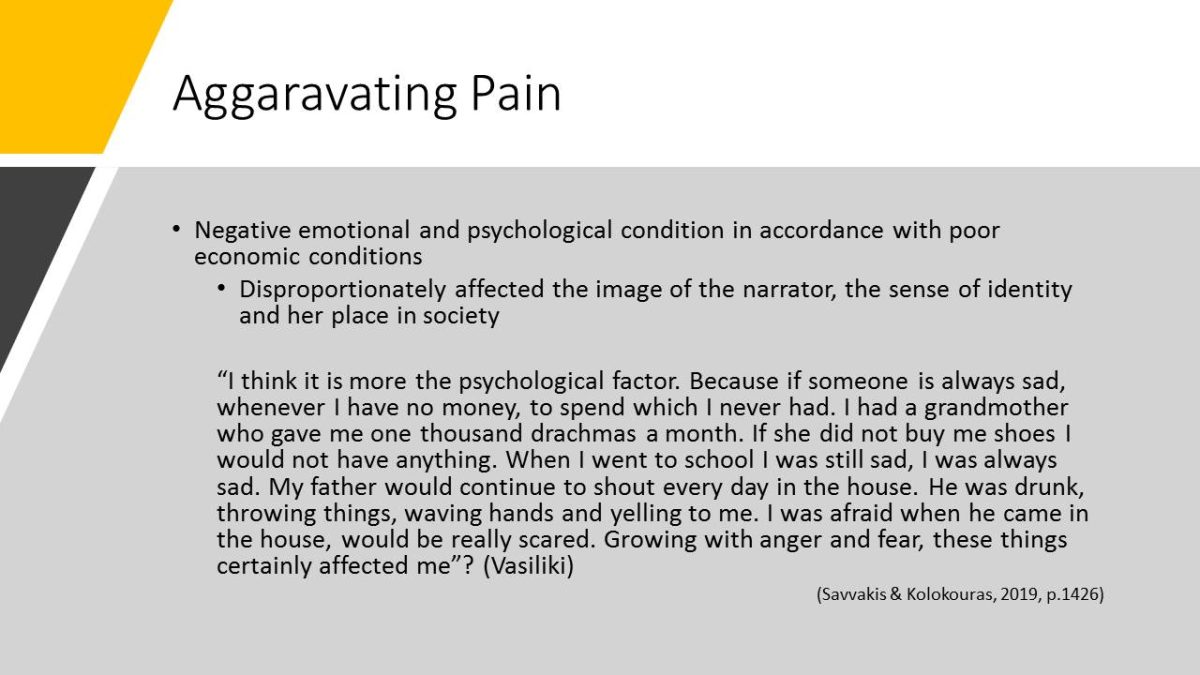
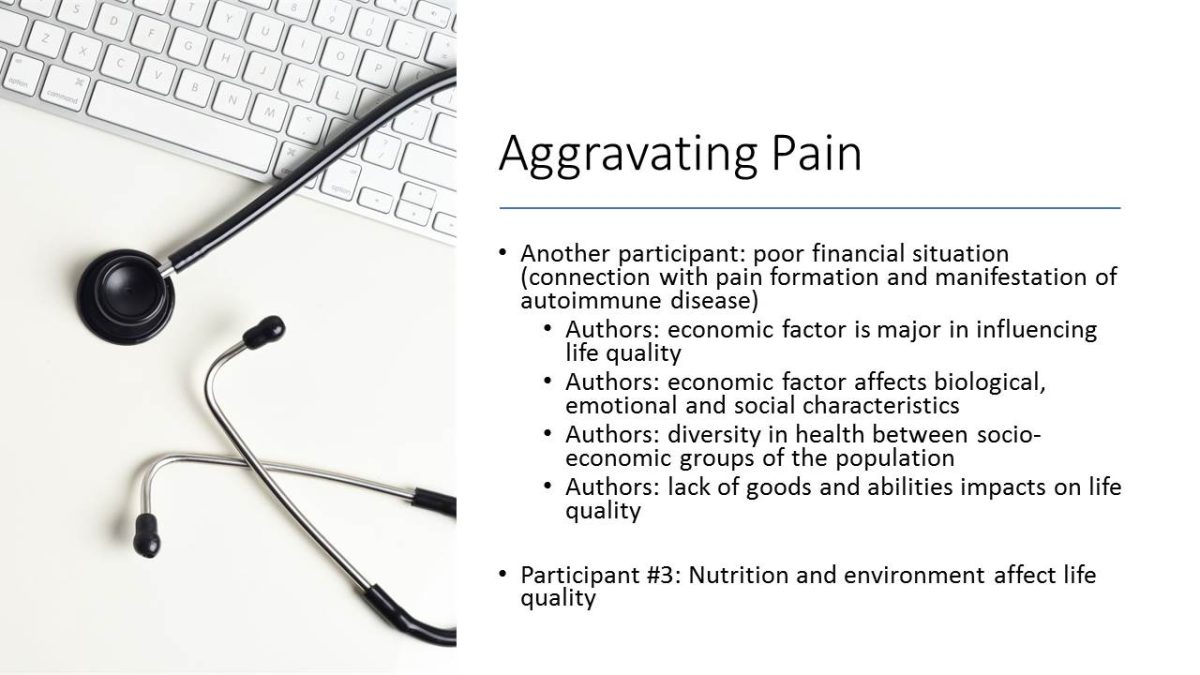
Quality of Life
Narrator: pain causes limitation in physical functioning:
- Everyday habits, leisure activities determined by the insecurity, the feeling of distrust, uneasiness, and fear
- Fear replaces pain.
Another narrator: pain restricts self- sufficiency and self-management (nutrition, entertainment, education):
- The disease creates sociological barrier between the narrator and people.
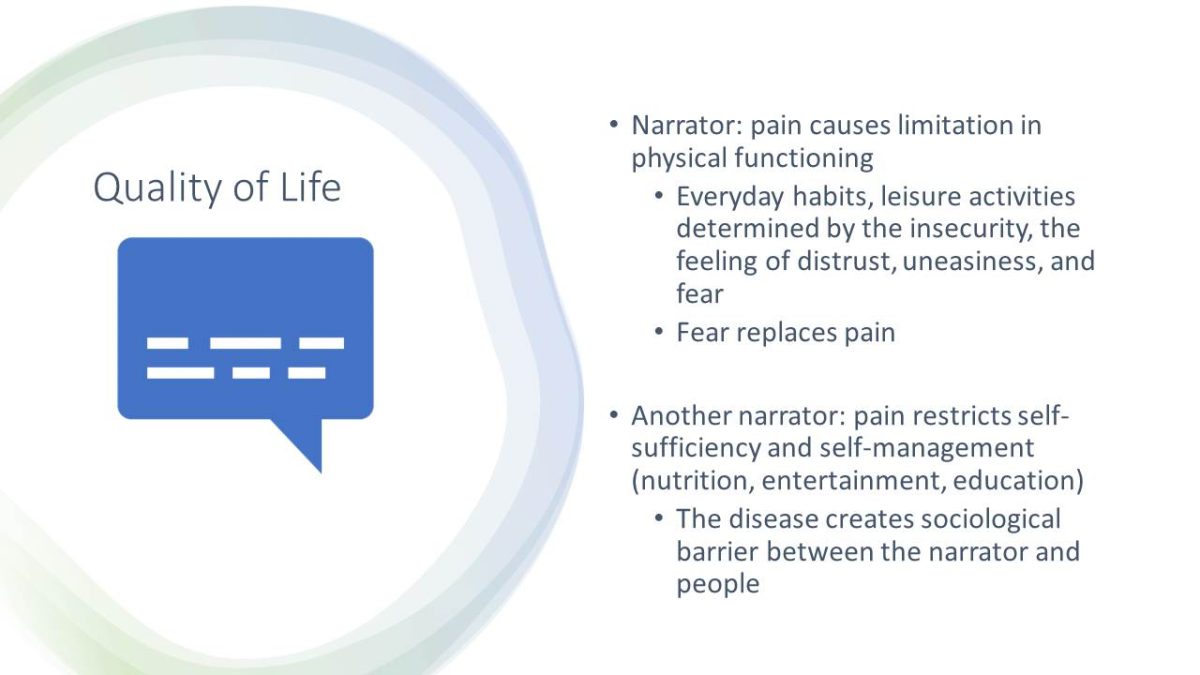
Personal Statements
Experiences of the participants allowed me to:
- Better comprehend the condition of patients in chronic pain.
- Realize their daily struggles.
- Highlight the economic factor among others.
- Think about various methods nurses can implement to enhance patient’s life quality.
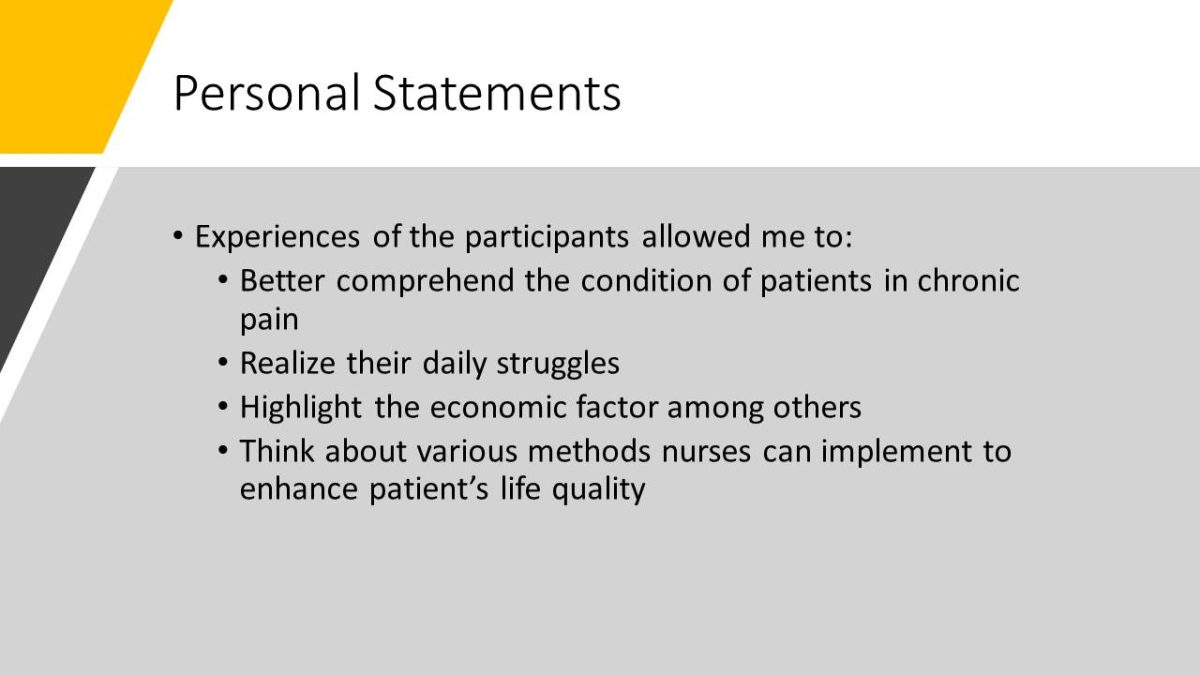
Using Results in Nursing Practice
- Understanding the roots of patient’s moods and conditions is essential for every health care worker.
- Nurses can provide sympathy and support better after studying the genesis of pain and possible factors influencing it.
- Nurses can put a positive impact on social and emotional status of the patient.
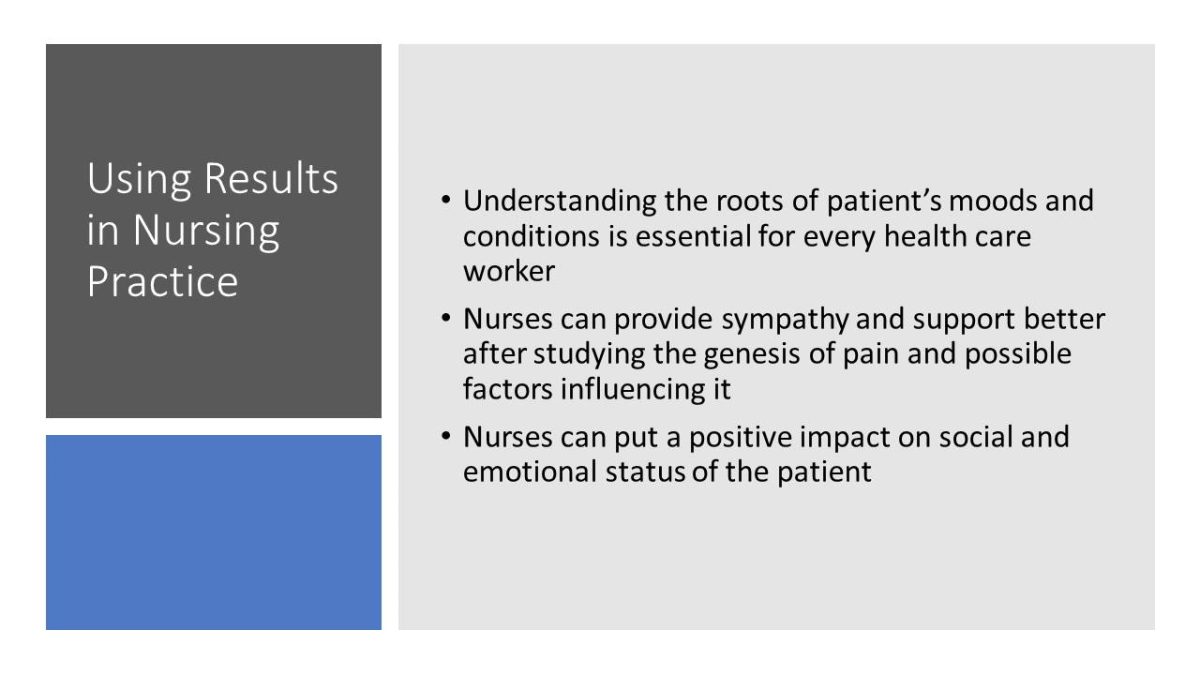
Weakness of the Study
Sample size: 12 patricipants:
- Not enough for statistically reliable data.
- Hard to estimate the importance of the economic factor on pain severity.
Subjective portion of the data:
- Interviews provide the personal perception of the participant.
- No filtration on lie, imagination from narrators.
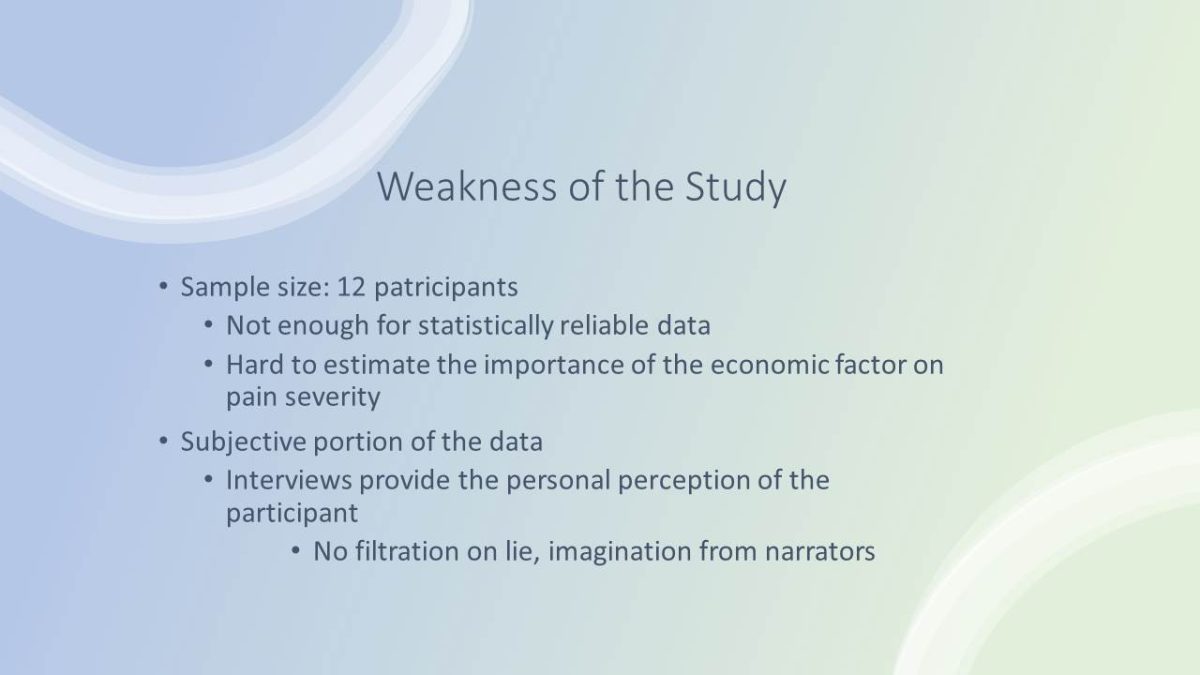
Overall Opinion of the Study
- Specific focus on patient’s perception of pain.
- Deep detalization of pain manifestation.
- Data collection allows paticipants to be sincere and provide trustwothy data.
- Semi-structured interviews brings together the reader and the participants of the research.
- BUT: small sample size (12 participants).
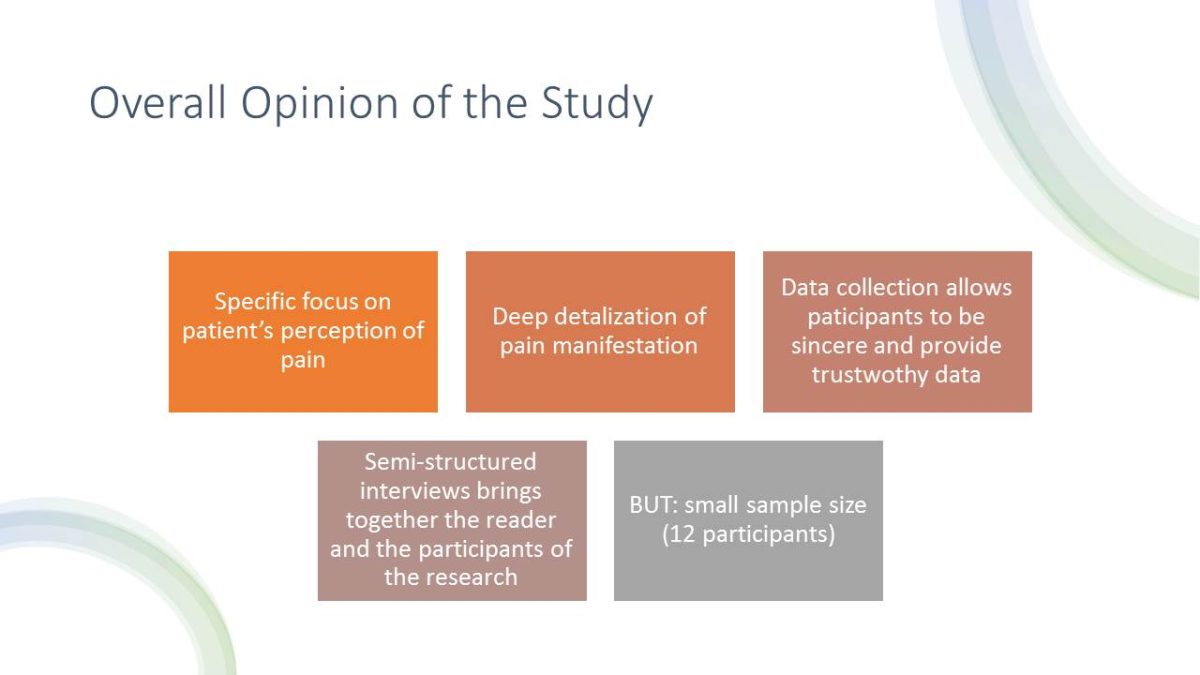
Reference
Savvakis, M., & Kolokouras, N. (2019). Quality of life and chronic pain: Coping practises and experiences of patinets with musculoskeletal diseases. International Journal of Caring Sciences, 12(3), 1423-1429.